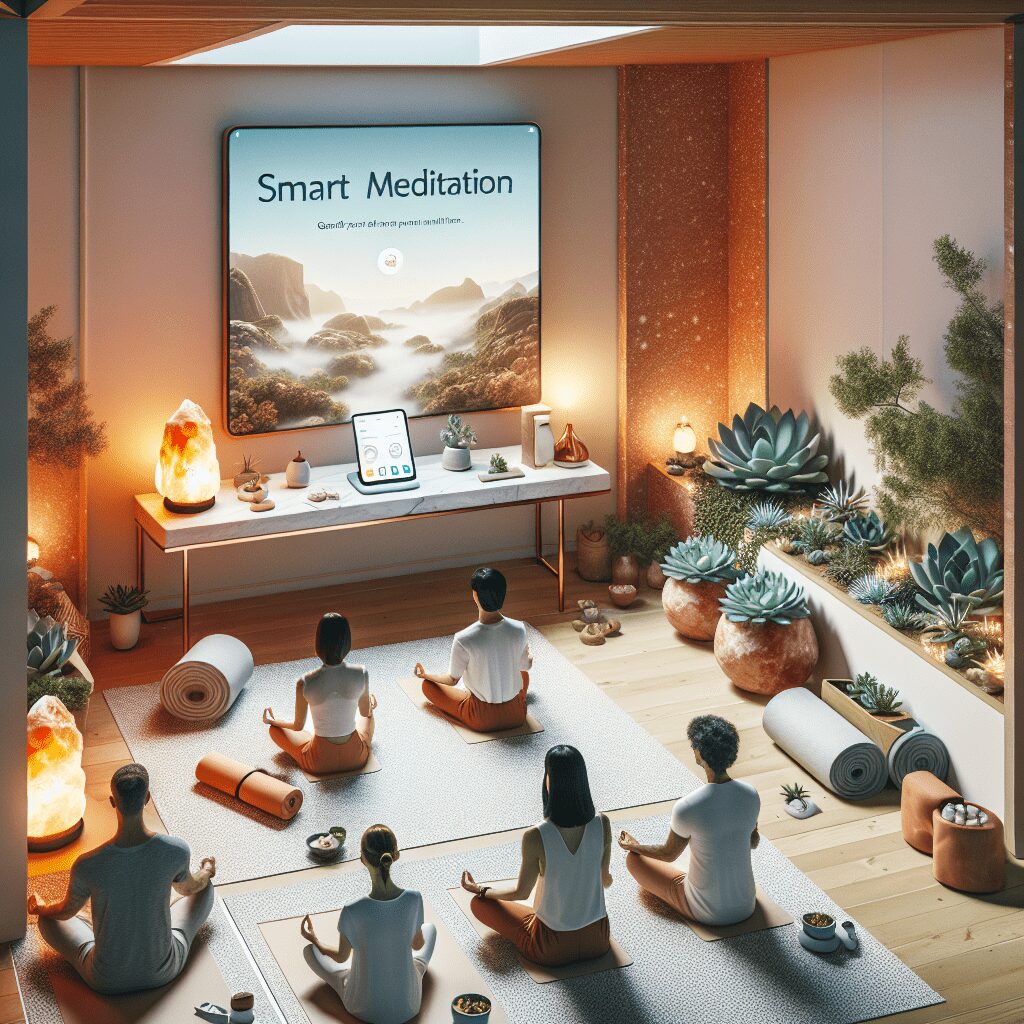
Prioritize your mental well-being daily. Enhance your life by nurturing your mental health with the Smart Meditation app. Break free from stress, alleviate anxiety, and enhance your sleep quality starting today.
How To Meditate To Help With Anxiety?
Unveiling the Power of Meditation: Your Antidote to Anxiety
In the hustle and bustle of today’s fast-paced world, anxiety has become a familiar, albeit unwelcome, guest in the lives of many. The good news is, there’s a time-tested, incredibly effective solution right at your fingertips – meditation. Far from being a New Age buzzword, meditation is a profound practice with roots deeply embedded in ancient cultures, offering a sanctuary of calm in the storm of your thoughts.
The Beginner’s Guide to Meditating for Anxiety Relief
Starting a meditation practice might seem as daunting as trying to solve a Rubik’s cube in the dark. Fear not! Here’s a straightforward, no-nonsense guide to get you started on your journey toward tranquility.
1. Choose Your Meditation Style:
First off, let’s bust a myth: there’s no one-size-fits-all when it comes to meditation. It’s about finding what resonates with you. Here’s the lowdown on a couple of styles that are particularly effective against anxiety:
-
Mindfulness Meditation: It’s all about living in the now, focusing on the present moment without judgment. This practice encourages a heightened state of awareness and centeredness.
-
Guided Visualization: Need a mini-vacay from your thoughts? Guided visualization takes you on a mental escapade to a place of peace and calm through vivid imagery.
2. Create a Zen Den:
Yep, your environment matters! Find a quiet, comfortable spot where interruptions are as rare as a blue moon. A little corner with comfy pillows or even a secluded spot in your garden can become your meditation oasis.
3. Time It Right:
Early bird or a night owl? It doesn’t matter. What’s crucial is to meditate at a time that feels natural to you. Even just 5-10 minutes can work wonders. Remember, consistency is key, not so much the clock.
4. Focus On Your Breath:
Breathing – it’s not just in-out, you know? It’s the anchor of your meditation practice. Breathe deeply and slowly, letting your mind focus solely on the rhythm of your breath. This simple act can be incredibly soothing for a stormy mind.
5. Let Go of Judgment:
Here’s a kicker – your mind will wander. Instead of getting frustrated or feeling like you’ve failed, simply acknowledge the thoughts and let them float by like clouds in the sky, bringing your focus back to your breath or the guided imagery.
6. Keep At It:
Like any good habit, persistence is crucial. Meditation is a skill that requires practice. The more you meditate, the easier it becomes to access that place of calm amid life’s storms.
Embracing the Journey
Remember, the path to mastering meditation and using it to combat anxiety is a journey, not a sprint. Every session is a step toward a more peaceful, centered you. Eureka moments don’t always happen overnight, but with time, you’ll likely find yourself wondering how you ever managed without your daily meditation fix.
Embarking on this meditative journey could be one of the best decisions you make for your mental well-being. In the words of Lao Tzu, “A journey of a thousand miles begins with a single step.” Take that step today, and unlock the door to managing anxiety with the ancient, yet ever-relevant, practice of meditation.





